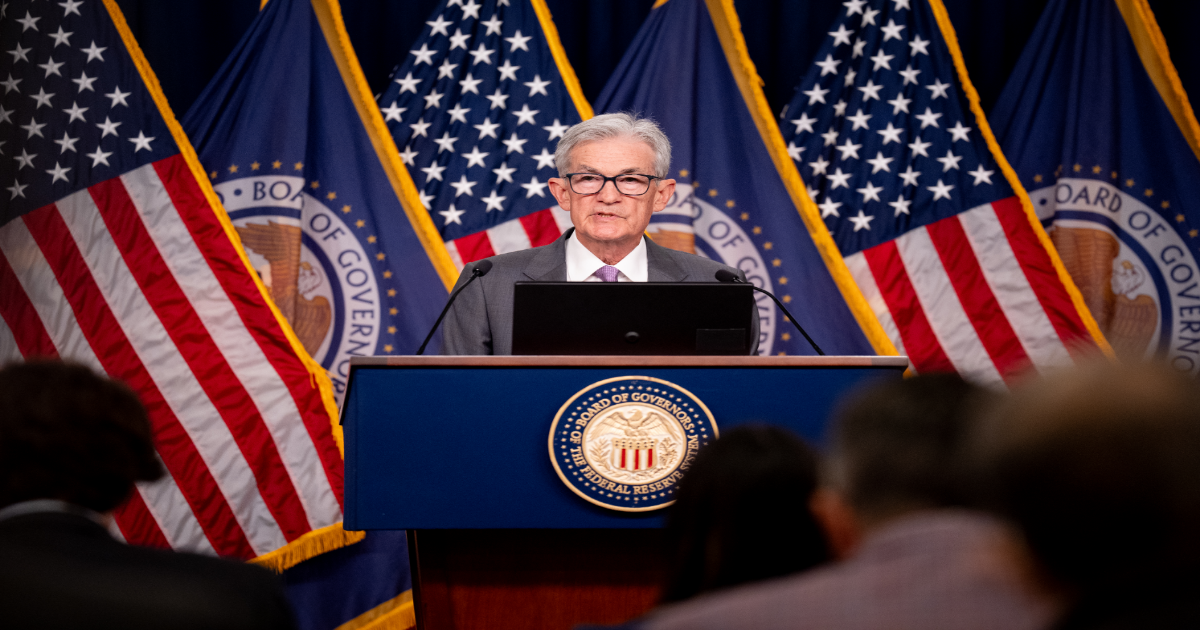Treasury Secretary Scott Bessent has repeatedly cautioned White House officials that any attempt to fire Federal Reserve Chair Jerome Powell would risk destabilizing financial markets, according to two people close to the White House granted anonymity to share details of private discussions.
Bessent’s private message reinforces what President Donald Trump already knows but comes as the president’s anger with the Fed chair is growing because Powell hasn’t shown signs that he will cut interest rates soon. It also comes against the backdrop of widespread market turmoil over the administration’s far-reaching trade war.
Trump’s fury with Powell burst into public view on Thursday morning, when he said in a Thursday morning post on Truth Social that his “termination cannot come fast enough!”
But Powell’s job looks safe for now.
Any attempt to remove Powell — a legally questionable option Trump considered in his first term — would feed instability in markets already woozy from the recent tariff whiplash. Investor confidence that the central bank will make decisions based on the path of the economy rather than on short-term politics is a key underpinning of the U.S.’s global financial reputation.
White House allies see Trump’s Thursday morning post less as an attempt to immediately oust Powell and more as an effort to throw the Fed chair off balance and position him as a future scapegoat for the country’s economic woes. The post also seems aimed at increasing pressure on Powell to capitulate. Of course, nothing is certain when it comes to Trump, who allies caution could change his mind at a moment’s notice and decide to more seriously pursue removing Powell.
A White House spokesperson referred questions back to the president’s Truth Social post. The Treasury Department did not immediately respond to a request for comment.
The Fed chief is in a wait-and-see posture on borrowing costs as he watches how tariffs feed into prices and employment — a position he reinforced Wednesday during remarks in Chicago. He warned that the trade war could lead to a scenario where the U.S. is experiencing both higher inflation and slower growth, two problems that the central bank cannot fight simultaneously.
Trump has been calling for lower rates against the backdrop of his tariffs, which some economists fear could lead to recession, but Powell and other Fed officials have been keeping rates elevated as they aim to maintain a lid on rising prices.
Markets expect that the Fed would ultimately cut rates in response to rising unemployment, even if tariffs push up inflation. But for now, economic data still looks solid, and Powell has said he and his fellow policymakers don’t need to be in a hurry to adjust rates.
Trump’s frustrations with Powell go back to his first term, when the president first elevated Powell to Fed chair. The central bank raised interest rates multiple times in 2018, which ultimately prompted Trump to consider firing Powell that December — a risk that led markets to plunge, and then rally once the president backed off his threats.
Attempting to unseat Powell would also mean yet another major test of the limits of the president’s executive authority. While there has long been speculation that Trump would attempt to fire Powell, the Fed chair has said the president lacks the authority to do so.
Under federal law, members of the Fed’s Board of Governors are appointed for staggered 14-year terms, and the president can remove them only “for cause” — a term generally understood to mean misconduct or malfeasance. That restriction is meant to shield the body from political interference. But the Trump administration is currently challenging the constitutionality of similar limits on the president’s authority to fire the heads of other independent agencies.
In an emergency appeal now pending at the Supreme Court, Trump argues he should have unfettered authority to fire the board members of the National Labor Relations Board and the Merit Systems Protection Board.
It is not clear whether the high court’s imminent ruling in that appeal would apply to the Fed, a point Powell, speaking at the Economic Club of Chicago, underscored Wednesday.
“That’s a case that people talk about a lot,” Powell said. “I don’t think that that decision will apply to the Fed, but I don’t know. It’s a situation that we’re monitoring carefully.”
Still, any move to fire Powell is likely to immediately be challenged in court. And, White House allies note, the Fed chair only has a year left in his term, which may increase the president’s desire to simply wait him out.
Trump, meanwhile, offered in his Truth Social post rare praise for the European Central Bank, which cut its key interest rate Thursday from 2.5 percent to 2.25 percent.
“The ECB is expected to cut interest rates for the 7th time,” Trump said before the central bank’s decision, adding that Powell “should have lowered Interest Rates, like the ECB, long ago, but he should certainly lower them now.”
